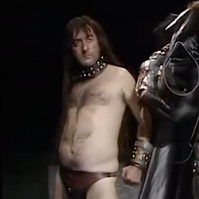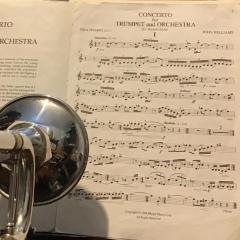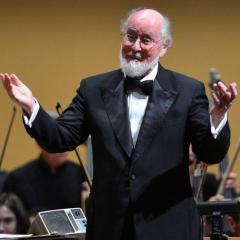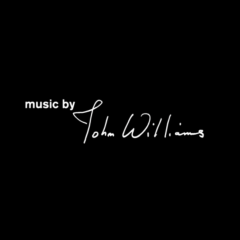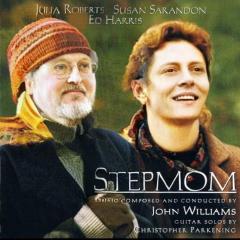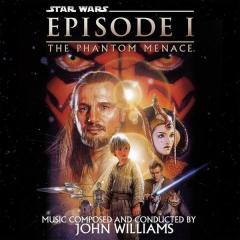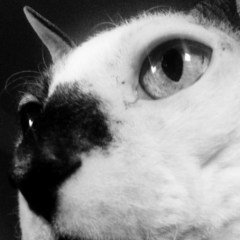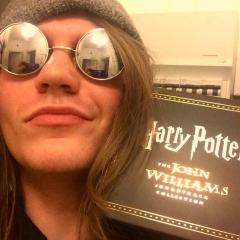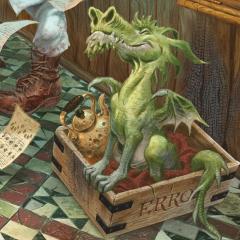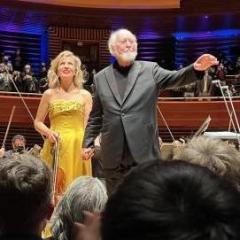-
Posts
374 -
Joined
-
Days Won
2
Reputation Activity
-
 Skelly got a reaction from crumbs in John Powell's SOLO: A STAR WARS STORY (2018) - Deluxe Edition 2020 / Intrada 2-CD edition October 31, 2023
Skelly got a reaction from crumbs in John Powell's SOLO: A STAR WARS STORY (2018) - Deluxe Edition 2020 / Intrada 2-CD edition October 31, 2023
With the AFM it's a chicken-or-the-egg situation. For 25 years film score fans have been complaining about how prohibitive the AFM's new use fees are, but over that same period of time those royalties have been becoming more and more precious to the musicians. In 1999 Local 47 wages totaled almost $50 million and by 2013 that total had sunk to barely $15 million. For most musicians that's not livable, and so they get their most important paychecks through residuals. If even that isn't enough to make ends meet, you have little choice but to be a "scab" and hope the only people who hear about it are sympathetic.
Obviously the musicians don't like this whole development. And they don't like the AFM's leaders who are doing little/nothing to stay competitive with London, where most of the work is moving. LA is the only place asking for these high backend payments. Their justification is that they're some of the best musicians in the world, but that's not a realistic appeal to a producer who only sees music as the thing which goes behind the dialogue/sfx. Why not save some cash and do it abroad?
Local 47 has tried in the past to experiment with a London-type "buyout" plan -- having much higher upfront wages in place of new use royalties -- but once the AFM caught wind of that they shut it down. The musicians are very split about it and the leadership of the AFM (who have been winning elections unopposed for a decade now) only wants to keep the status quo.
Since all work shut down overnight in March that annual residuals check became so critical that AFM members got theirs a full month early. I'm sure at least a few people who thought a buyout clause was the best way forward are now thinking twice about removing new use entirely, because otherwise a lot of them would have been totally financially stranded.
-
 Skelly got a reaction from ricsim88 in John Powell's SOLO: A STAR WARS STORY (2018) - Deluxe Edition 2020 / Intrada 2-CD edition October 31, 2023
Skelly got a reaction from ricsim88 in John Powell's SOLO: A STAR WARS STORY (2018) - Deluxe Edition 2020 / Intrada 2-CD edition October 31, 2023
With the AFM it's a chicken-or-the-egg situation. For 25 years film score fans have been complaining about how prohibitive the AFM's new use fees are, but over that same period of time those royalties have been becoming more and more precious to the musicians. In 1999 Local 47 wages totaled almost $50 million and by 2013 that total had sunk to barely $15 million. For most musicians that's not livable, and so they get their most important paychecks through residuals. If even that isn't enough to make ends meet, you have little choice but to be a "scab" and hope the only people who hear about it are sympathetic.
Obviously the musicians don't like this whole development. And they don't like the AFM's leaders who are doing little/nothing to stay competitive with London, where most of the work is moving. LA is the only place asking for these high backend payments. Their justification is that they're some of the best musicians in the world, but that's not a realistic appeal to a producer who only sees music as the thing which goes behind the dialogue/sfx. Why not save some cash and do it abroad?
Local 47 has tried in the past to experiment with a London-type "buyout" plan -- having much higher upfront wages in place of new use royalties -- but once the AFM caught wind of that they shut it down. The musicians are very split about it and the leadership of the AFM (who have been winning elections unopposed for a decade now) only wants to keep the status quo.
Since all work shut down overnight in March that annual residuals check became so critical that AFM members got theirs a full month early. I'm sure at least a few people who thought a buyout clause was the best way forward are now thinking twice about removing new use entirely, because otherwise a lot of them would have been totally financially stranded.
-
 Skelly got a reaction from BryonDavis in John Powell's SOLO: A STAR WARS STORY (2018) - Deluxe Edition 2020 / Intrada 2-CD edition October 31, 2023
Skelly got a reaction from BryonDavis in John Powell's SOLO: A STAR WARS STORY (2018) - Deluxe Edition 2020 / Intrada 2-CD edition October 31, 2023
With the AFM it's a chicken-or-the-egg situation. For 25 years film score fans have been complaining about how prohibitive the AFM's new use fees are, but over that same period of time those royalties have been becoming more and more precious to the musicians. In 1999 Local 47 wages totaled almost $50 million and by 2013 that total had sunk to barely $15 million. For most musicians that's not livable, and so they get their most important paychecks through residuals. If even that isn't enough to make ends meet, you have little choice but to be a "scab" and hope the only people who hear about it are sympathetic.
Obviously the musicians don't like this whole development. And they don't like the AFM's leaders who are doing little/nothing to stay competitive with London, where most of the work is moving. LA is the only place asking for these high backend payments. Their justification is that they're some of the best musicians in the world, but that's not a realistic appeal to a producer who only sees music as the thing which goes behind the dialogue/sfx. Why not save some cash and do it abroad?
Local 47 has tried in the past to experiment with a London-type "buyout" plan -- having much higher upfront wages in place of new use royalties -- but once the AFM caught wind of that they shut it down. The musicians are very split about it and the leadership of the AFM (who have been winning elections unopposed for a decade now) only wants to keep the status quo.
Since all work shut down overnight in March that annual residuals check became so critical that AFM members got theirs a full month early. I'm sure at least a few people who thought a buyout clause was the best way forward are now thinking twice about removing new use entirely, because otherwise a lot of them would have been totally financially stranded.
-
 Skelly got a reaction from Holko in Restored Isolated Score: Harry Potter and the Philosopher's Stone
Skelly got a reaction from Holko in Restored Isolated Score: Harry Potter and the Philosopher's Stone
The 180-degree turn at 2:02 was evidently added in later, since Wannberg or whoever looped music specifically for the duration of that shot. I guess Williams scored a cut where Voldemort didn't explain the unicorn blood.
-
 Skelly got a reaction from ragoz350 in Restored Isolated Score: Harry Potter and the Philosopher's Stone
Skelly got a reaction from ragoz350 in Restored Isolated Score: Harry Potter and the Philosopher's Stone
I'm not sure about that since this movie doesn't use establishing shots very often just to pass time (there are two, maybe three instances; the sequel has plenty though). Usually it's the way it's cut now where even if the shot starts static, the action rolls in quickly. This was my approximation. But I'm a little doubtful that I got it right since the flutes obviously collide with Hermione.
-
 Skelly got a reaction from Holko in Restored Isolated Score: Harry Potter and the Philosopher's Stone
Skelly got a reaction from Holko in Restored Isolated Score: Harry Potter and the Philosopher's Stone
I'm not sure about that since this movie doesn't use establishing shots very often just to pass time (there are two, maybe three instances; the sequel has plenty though). Usually it's the way it's cut now where even if the shot starts static, the action rolls in quickly. This was my approximation. But I'm a little doubtful that I got it right since the flutes obviously collide with Hermione.
-
 Skelly got a reaction from Holko in Restored Isolated Score: Harry Potter and the Philosopher's Stone
Skelly got a reaction from Holko in Restored Isolated Score: Harry Potter and the Philosopher's Stone
I wonder if that cue was inspired by a different ending to the mirror scene where Harry asks what Dumbledore sees in the mirror, and he says a new pair of socks.
It's a shame that so much music was dialed out in the last scene you posted, because it shows Williams's knack for scoring dialogue. But by that point there'd already been so much music and I think they wanted to avoid underscoring muggle scenes. Plus it makes the Dursleys more comically evil than was maybe intended.
-
 Skelly got a reaction from Falstaft in New JW interview on Frankfurter Allgemeine Zeitung (in German language)
Skelly got a reaction from Falstaft in New JW interview on Frankfurter Allgemeine Zeitung (in German language)
I think expecting Williams to do a tell-all at his age and with his consistent outlook about the idea ("My life isn't interesting enough") is wishful thinking. But he's donated his old scores and has given his blessing for expanded CD releases so that's something. On the other hand he was happy to speak at length about Conrad Salinger a few months ago, so if someone really wants to get him to talk then asking him about his experiences with other people is the way to do it. I think any personal legacy he wants to leave behind can be found at the end:
If they're playing Superman today, maybe they'll be interested in playing Berlioz tomorrow. Being able to open someone else's musical world like that seems like a great thrill to him, maybe most evident with the Children's Suite from Harry Potter (which I understand he recorded only by hoarding bits of spare session time, and which J.K. Rowling's people were wary of to some degree -- he didn't have to do that).
-
 Skelly got a reaction from Falstaft in Elliot Goldenthal
Skelly got a reaction from Falstaft in Elliot Goldenthal
Tomorrow night, for anyone who needs a reminder. I'll record it if I can.
-
 Skelly got a reaction from crumbs in Harry Potter Box recommendations
Skelly got a reaction from crumbs in Harry Potter Box recommendations
Re: the choir in the Quidditch cue -- I agree with crumbs that dropping the choir makes the Grim's looming image more eerie. That little section was chopped in half in the final cut (there's no giant "Double Trouble" statement anymore) so maybe there was something in the editing or length which Williams was responding to that we can't see anymore. And with that in mind it kind of "breaks" the music if choir suddenly comes and goes without that Double Trouble there to tie it back to the rest of the track.
Another reason they nixed it might be because choir is the trademark sound of the patronus and narratively it's out of place here.
-
 Skelly got a reaction from Bayesian in New interview with John Williams in The Times
Skelly got a reaction from Bayesian in New interview with John Williams in The Times
It reminds me of an anecdote Conrad Pope told about some Oliver Stone film they worked on. The first thing they recorded was the main title and Stone loved it. Williams told Stone he thought take 3 was the best of the bunch, but Stone disagreed; take 1 was the best. Williams recognized what was really going on was that Stone still felt the buzz of excitement from hearing the music for the first time, and was attaching that feeling to the first take. So instead of arguing he just said, "Let's talk about it later"; and in the end they used take 3 because by that point Stone couldn't remember or tell the difference anyway.
-
 Skelly got a reaction from Remco in New interview with John Williams in The Times
Skelly got a reaction from Remco in New interview with John Williams in The Times
It reminds me of an anecdote Conrad Pope told about some Oliver Stone film they worked on. The first thing they recorded was the main title and Stone loved it. Williams told Stone he thought take 3 was the best of the bunch, but Stone disagreed; take 1 was the best. Williams recognized what was really going on was that Stone still felt the buzz of excitement from hearing the music for the first time, and was attaching that feeling to the first take. So instead of arguing he just said, "Let's talk about it later"; and in the end they used take 3 because by that point Stone couldn't remember or tell the difference anyway.
-
 Skelly got a reaction from Holko in New interview with John Williams in The Times
Skelly got a reaction from Holko in New interview with John Williams in The Times
It reminds me of an anecdote Conrad Pope told about some Oliver Stone film they worked on. The first thing they recorded was the main title and Stone loved it. Williams told Stone he thought take 3 was the best of the bunch, but Stone disagreed; take 1 was the best. Williams recognized what was really going on was that Stone still felt the buzz of excitement from hearing the music for the first time, and was attaching that feeling to the first take. So instead of arguing he just said, "Let's talk about it later"; and in the end they used take 3 because by that point Stone couldn't remember or tell the difference anyway.
-
 Skelly got a reaction from Not Mr. Big in New interview with John Williams in The Times
Skelly got a reaction from Not Mr. Big in New interview with John Williams in The Times
It reminds me of an anecdote Conrad Pope told about some Oliver Stone film they worked on. The first thing they recorded was the main title and Stone loved it. Williams told Stone he thought take 3 was the best of the bunch, but Stone disagreed; take 1 was the best. Williams recognized what was really going on was that Stone still felt the buzz of excitement from hearing the music for the first time, and was attaching that feeling to the first take. So instead of arguing he just said, "Let's talk about it later"; and in the end they used take 3 because by that point Stone couldn't remember or tell the difference anyway.
-
 Skelly got a reaction from Ricard in New interview with John Williams in The Times
Skelly got a reaction from Ricard in New interview with John Williams in The Times
It reminds me of an anecdote Conrad Pope told about some Oliver Stone film they worked on. The first thing they recorded was the main title and Stone loved it. Williams told Stone he thought take 3 was the best of the bunch, but Stone disagreed; take 1 was the best. Williams recognized what was really going on was that Stone still felt the buzz of excitement from hearing the music for the first time, and was attaching that feeling to the first take. So instead of arguing he just said, "Let's talk about it later"; and in the end they used take 3 because by that point Stone couldn't remember or tell the difference anyway.
-
 Skelly got a reaction from Falstaft in New interview with John Williams in The Times
Skelly got a reaction from Falstaft in New interview with John Williams in The Times
It reminds me of an anecdote Conrad Pope told about some Oliver Stone film they worked on. The first thing they recorded was the main title and Stone loved it. Williams told Stone he thought take 3 was the best of the bunch, but Stone disagreed; take 1 was the best. Williams recognized what was really going on was that Stone still felt the buzz of excitement from hearing the music for the first time, and was attaching that feeling to the first take. So instead of arguing he just said, "Let's talk about it later"; and in the end they used take 3 because by that point Stone couldn't remember or tell the difference anyway.
-
 Skelly got a reaction from bruce marshall in New interview with John Williams in The Times
Skelly got a reaction from bruce marshall in New interview with John Williams in The Times
It reminds me of an anecdote Conrad Pope told about some Oliver Stone film they worked on. The first thing they recorded was the main title and Stone loved it. Williams told Stone he thought take 3 was the best of the bunch, but Stone disagreed; take 1 was the best. Williams recognized what was really going on was that Stone still felt the buzz of excitement from hearing the music for the first time, and was attaching that feeling to the first take. So instead of arguing he just said, "Let's talk about it later"; and in the end they used take 3 because by that point Stone couldn't remember or tell the difference anyway.
-
 Skelly got a reaction from Falstaft in Harry Potter 7CD Collection - MUSIC discussion
Skelly got a reaction from Falstaft in Harry Potter 7CD Collection - MUSIC discussion
Sure, if it wasn't stimulating he wouldn't be doing it. All the same, in interviews he describes the life of a pencil-and-paper guy like him as hermetical and lonely, usually in a soft-spoken, thoughtful tone of voice. That's how he wants to spin it for the public, even if in reality the pencil-and-paper process might be more fulfilling or invigorating than he admits. He describes the day-to-day schedule of his writing period as very challenging, very private, and through the decades he's more or less kept it that way for his listeners and fans -- even though some interesting morsels slip through the cracks every once in a while, like the Empire Strikes Back documentary where he and Herb Spencer discuss the orchestration for a cue.
But whenever he starts talking about the parts of his job that are away from the desk, that's when his eyes will light up and he'll wax lyrical. His job has brought him into contact with some extraordinary people and that's what he seems to be more comfortable talking about. People here say it's the journalists' fault for not asking him more thoughtful, probing questions, but Williams is happy to go off on tangents and change the conversation towards things that he thinks are worth people's time to read -- about the brilliance of directors or actors or other musicians, how the world responds to music and vice versa. He kinda flippantly says that he doesn't watch movies and doesn't listen to music (obviously he does) but I feel like he only says that to abstain himself from talking just about movie music in these interviews. If he wanted to go off on a tangent about that stuff then he by all means would. He's done enough of these things to know that he controls the conversation, not the reporter. But if he doesn't want to get into great detail about his musical choices then he won't do it. In an interview a few weeks ago someone asked him the specific question of why he used timpani so much for the new Star Wars movies. His final word on that was "I don’t know", before switching to the old spiel about how lucky he is to be doing these movies for forty years. He's more interested in that phenomenon than what must to him feel like an an orchestration 101 question. That's just what he wants to talk about, and the nuts and bolts of his working life and musical intuition are a deeply personal part of himself that he's only going to share with his close buddies.
-
 Skelly got a reaction from Once in Harry Potter 7CD Collection - MUSIC discussion
Skelly got a reaction from Once in Harry Potter 7CD Collection - MUSIC discussion
The shawm and tambourine tracks are interesting because they're examples of how Cuaron blurs the line between underscore and diegetic music (or even sound effects) in a way that hasn't been popular or standard pretty much since the 1930s. Like Hitchcock famously asked, "Where is the music coming from?" The shawm is ostensibly coming from somewhere in the pub, but then it slides into orchestral underscore and for a moment the two are laid on top each other. The Dufay track seems to be normal underscore at first as Buckbeak nuzzles Harry, but suddenly one cut later it's paranormal music that constantly follows the headless horsemen. Or the lute track, where it isn't until the shot's conclusion that we see the "underscore" is actually coming from someone randomly playing his own instrument. Or the Boggart scene where the difference between underscore and source music is the difference between fear and fun, but when the two intertwine during Harry's turn -- where's the music coming from then? There are other examples but those are the most obvious.
I think the opposite of that might be part of why the Diagon Alley music in the first movie was dropped and replaced with the Great Hall cue. Harry steps out of the Leaky Cauldron (which had obvious source music) and into Diagon Alley, and even though Williams puts an orchestral delineation up as the brick wall disassembles, he goes back into wizardly music that tells us more what Harry is probably hearing as opposed to what he's feeling. I think the filmmakers wanted to keep the score firmly from Harry's perspective, and the only cue I can think of that deviates from that is "Filch's Fond Remembrance" (which was cut down a lot in the actual movie).
-
 Skelly got a reaction from crlbrg in Harry Potter 7CD Collection - MUSIC discussion
Skelly got a reaction from crlbrg in Harry Potter 7CD Collection - MUSIC discussion
The shawm and tambourine tracks are interesting because they're examples of how Cuaron blurs the line between underscore and diegetic music (or even sound effects) in a way that hasn't been popular or standard pretty much since the 1930s. Like Hitchcock famously asked, "Where is the music coming from?" The shawm is ostensibly coming from somewhere in the pub, but then it slides into orchestral underscore and for a moment the two are laid on top each other. The Dufay track seems to be normal underscore at first as Buckbeak nuzzles Harry, but suddenly one cut later it's paranormal music that constantly follows the headless horsemen. Or the lute track, where it isn't until the shot's conclusion that we see the "underscore" is actually coming from someone randomly playing his own instrument. Or the Boggart scene where the difference between underscore and source music is the difference between fear and fun, but when the two intertwine during Harry's turn -- where's the music coming from then? There are other examples but those are the most obvious.
I think the opposite of that might be part of why the Diagon Alley music in the first movie was dropped and replaced with the Great Hall cue. Harry steps out of the Leaky Cauldron (which had obvious source music) and into Diagon Alley, and even though Williams puts an orchestral delineation up as the brick wall disassembles, he goes back into wizardly music that tells us more what Harry is probably hearing as opposed to what he's feeling. I think the filmmakers wanted to keep the score firmly from Harry's perspective, and the only cue I can think of that deviates from that is "Filch's Fond Remembrance" (which was cut down a lot in the actual movie).
-
 Skelly got a reaction from crocodile in Elliot Goldenthal
Skelly got a reaction from crocodile in Elliot Goldenthal
Classical KUSC will be airing "October Light" again next month on August 16th, 7PM PST.
-
 Skelly got a reaction from KK in Elliot Goldenthal
Skelly got a reaction from KK in Elliot Goldenthal
Classical KUSC will be airing "October Light" again next month on August 16th, 7PM PST.
-
 Skelly got a reaction from BrotherSound in Harry Potter 7CD Collection - MUSIC discussion
Skelly got a reaction from BrotherSound in Harry Potter 7CD Collection - MUSIC discussion
You can get a pretty clean copy if you play with it enough
https://clyp.it/ii3urvna?token=a618b4472874f54494e3fe135eba2294
-
 Skelly got a reaction from Docteur Qui in Harry Potter 7CD Collection - MUSIC discussion
Skelly got a reaction from Docteur Qui in Harry Potter 7CD Collection - MUSIC discussion
The shawm and tambourine tracks are interesting because they're examples of how Cuaron blurs the line between underscore and diegetic music (or even sound effects) in a way that hasn't been popular or standard pretty much since the 1930s. Like Hitchcock famously asked, "Where is the music coming from?" The shawm is ostensibly coming from somewhere in the pub, but then it slides into orchestral underscore and for a moment the two are laid on top each other. The Dufay track seems to be normal underscore at first as Buckbeak nuzzles Harry, but suddenly one cut later it's paranormal music that constantly follows the headless horsemen. Or the lute track, where it isn't until the shot's conclusion that we see the "underscore" is actually coming from someone randomly playing his own instrument. Or the Boggart scene where the difference between underscore and source music is the difference between fear and fun, but when the two intertwine during Harry's turn -- where's the music coming from then? There are other examples but those are the most obvious.
I think the opposite of that might be part of why the Diagon Alley music in the first movie was dropped and replaced with the Great Hall cue. Harry steps out of the Leaky Cauldron (which had obvious source music) and into Diagon Alley, and even though Williams puts an orchestral delineation up as the brick wall disassembles, he goes back into wizardly music that tells us more what Harry is probably hearing as opposed to what he's feeling. I think the filmmakers wanted to keep the score firmly from Harry's perspective, and the only cue I can think of that deviates from that is "Filch's Fond Remembrance" (which was cut down a lot in the actual movie).
-
 Skelly got a reaction from Taikomochi in Harry Potter 7CD Collection - MUSIC discussion
Skelly got a reaction from Taikomochi in Harry Potter 7CD Collection - MUSIC discussion
The shawm and tambourine tracks are interesting because they're examples of how Cuaron blurs the line between underscore and diegetic music (or even sound effects) in a way that hasn't been popular or standard pretty much since the 1930s. Like Hitchcock famously asked, "Where is the music coming from?" The shawm is ostensibly coming from somewhere in the pub, but then it slides into orchestral underscore and for a moment the two are laid on top each other. The Dufay track seems to be normal underscore at first as Buckbeak nuzzles Harry, but suddenly one cut later it's paranormal music that constantly follows the headless horsemen. Or the lute track, where it isn't until the shot's conclusion that we see the "underscore" is actually coming from someone randomly playing his own instrument. Or the Boggart scene where the difference between underscore and source music is the difference between fear and fun, but when the two intertwine during Harry's turn -- where's the music coming from then? There are other examples but those are the most obvious.
I think the opposite of that might be part of why the Diagon Alley music in the first movie was dropped and replaced with the Great Hall cue. Harry steps out of the Leaky Cauldron (which had obvious source music) and into Diagon Alley, and even though Williams puts an orchestral delineation up as the brick wall disassembles, he goes back into wizardly music that tells us more what Harry is probably hearing as opposed to what he's feeling. I think the filmmakers wanted to keep the score firmly from Harry's perspective, and the only cue I can think of that deviates from that is "Filch's Fond Remembrance" (which was cut down a lot in the actual movie).


